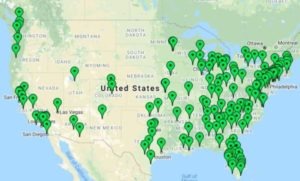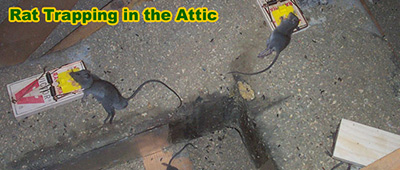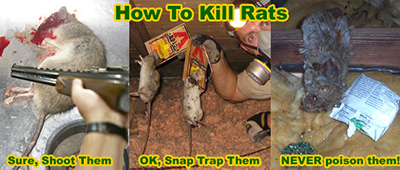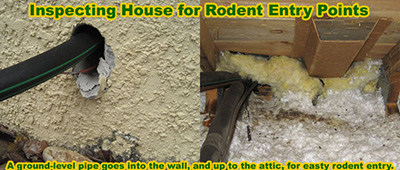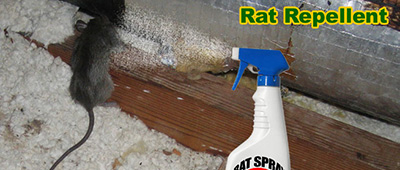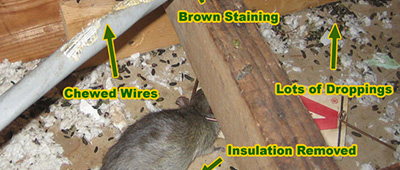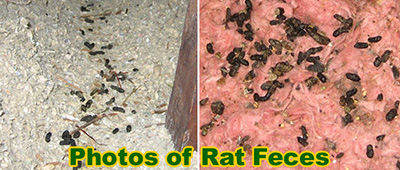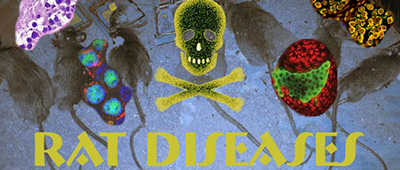Need professional rat help? What does it cost? Go to the home page
Believe it or not, there are actually so many ways in which you can trap a rat. Well, there are when you get technical about things. There are lethal snap traps which are … well, lethal, just as the name suggest. These are traps which you can buy in stores, and are often advised if you have a rat infestation. It's certainly a better method than poison, which we would never recommend. We don't use poisons. It's not only inhumane, but usually rather ineffective also.
If you're going to opt for lethal snap traps, make sure you choose the wooden ones over the plastic ones, which tend to fail a lot and not do the “full” job. You will want to place these traps where you see the most droppings and other signs of rat activity in your home. This is to give you the highest chance of catching them. You will find they are most effective when placed along a wall - rats tend to run along these, rather than through the center of the room. This is for obvious reason - it makes them harder to detect and catch. You will also want to ensure that you're placing the trap in areas where your kids, toes, and also pet paws can't get to it. You want to catch a rat, remember, and not the beloved family cat.
The bait isn't important, but peanut butter is a simple and easy one to pick. From there on in, it's simply a matter of watching and waiting. Check the traps regularly so that you can replace them where necessary. You don't want to leave dead rats in traps lying around the home. You may also need to freshen up the bait from time to time, or even move the traps if they simply aren't catching anything. Sometimes it's a case of trial and error.
It is legal to trap a rat, and trapping is the best way to remove rats. If you're going to do it, make sure you're doing it properly. Otherwise you'll just be wasting your own time and money.
Go back to the Rats in the Attic home page.
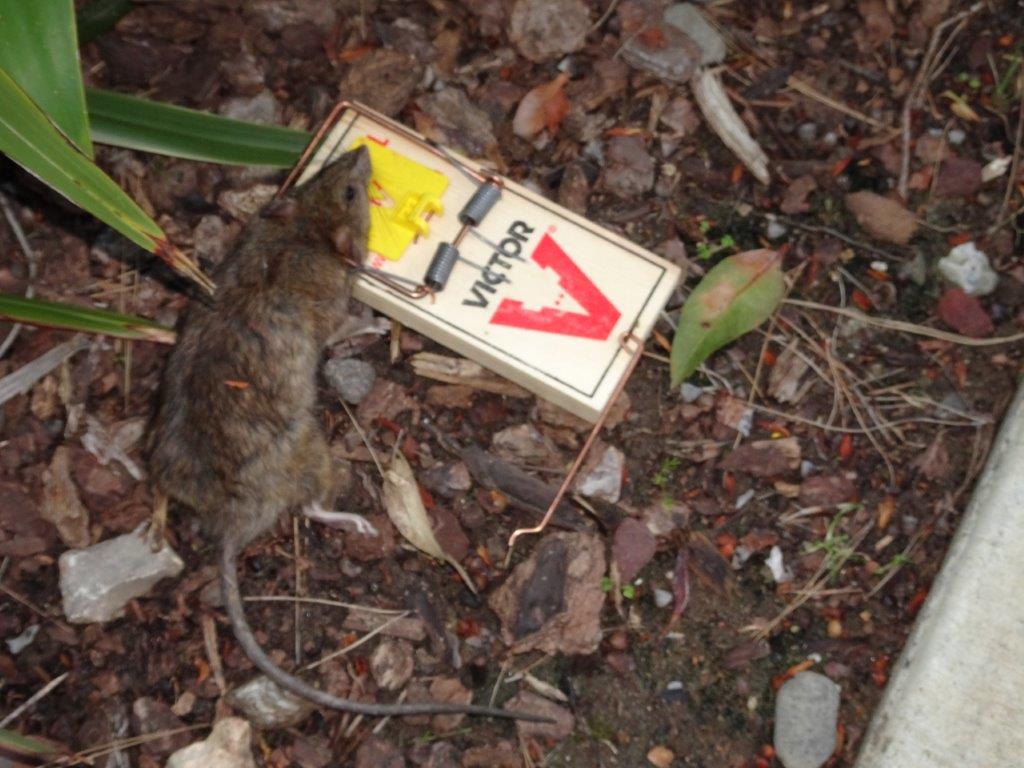
Rats are a commensal species, which means they live closely alongside humans and depend on a lot of our behavior to survive. They eat our discarded food and use our shelter if we're not careful. If they manage to get inside your home, it's common sense to deploy methods to control them. You may assume that there would be no legal ramifications attached to the trapping or killing of rats or rodents. While the adequate control of invasive rodents is widely encouraged and often required, depending on your location you may need to check the specifics of your restrictions, as different jurisdictions have certain exceptions.
Types of Traps
Glue traps employ highly viscous resins to trap rats and stop them from moving. While it is possible that the animals will live long enough for you to release them, glue traps have the potential to suffocate the animal, and they can die of dehydration or starvation in the meantime. Organizations like PETA and the Humane Society are campaigning to end the cruelty of glue traps, but they remain legal in the US. Many people confuse the law surrounding rat trapping with bird trapping, as it is currently wholly illegal to trap wild birds using glue traps. However, it is unnecessary to use glue to trap a rat. It's messy, inhumane, and there's an abundance of better options.
Snap traps are the more humane lethal option. Their use is legal throughout the entire US, with the exception of Washington DC. In DC, both snap traps and glue traps are prohibited and residents are required to call a professional to relocate them safely.
The restrictions placed on the trapping of larger animals have proliferated some misconceptions about the trapping of rats. The potential for criminal liability does not typically come from the use of the traps themselves, but their misuse. As long as the health concerns of desirable wildlife, children and pets are considered, then trapping your nuisance rats is a legal and encouraged pursuit. However, regardless of the legality of DIY trapping, it is always advised to call a professional who will make the most effective use of a trap.
Rodenticide
The restrictions on anti-coagulants are the most significant restrictions that need to be observed when considering how to tackle a rat problem. These restrictions were put in place in 2011 and were designed to protect desirable wildlife from the effects of careless poisoning. The restrictions effectively require the manufacturers of these toxins to house them in bait stations. This is to prevent the consumer from scattering them over the ground where animals, pets, and children may be accidentally poisoned. Always read the label and consider the far-reaching potential of rodenticide misuse.
Prevention
While it is widely legal to trap rats, this does not mean that it should be your only contingency. Prevention is always the best approach for rats, and the methods you can use to do this are a long-lasting solution for the root cause, instead of temporarily abating the symptoms. If the infestation is in your property, you need to make sure you remove any points of interest for the rat. Open food containers, water sources, and easy entrance points are all attractants, and if you remove them you have much more chance of eliminating your problem completely.

